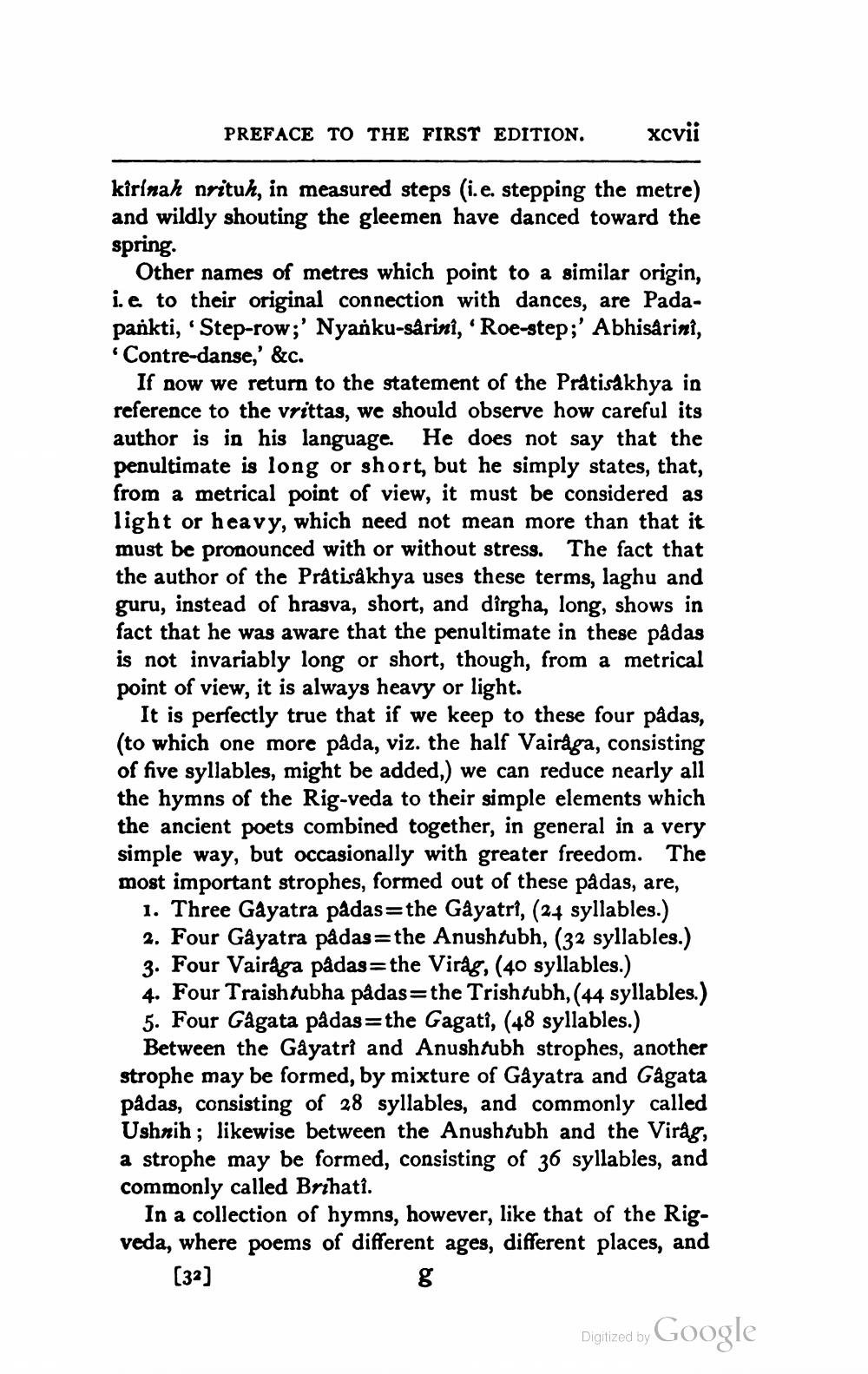________________
PREFACE TO THE FIRST EDITION.
xcvii
kirinah nrituh, in measured steps (i.e. stepping the metre) and wildly shouting the gleemen have danced toward the spring.
Other names of metres which point to a similar origin, i.e to their original connection with dances, are Padapankti, Step-row;' Nyanku-sarini, Roe-step;' Abhisarini, Contre-danse,' &c.
If now we return to the statement of the Prátisakhya in reference to the vrittas, we should observe how careful its author is in his language. He does not say that the penultimate is long or short, but he simply states, that, from a metrical point of view, it must be considered as light or heavy, which need not mean more than that it must be pronounced with or without stress. The fact that the author of the Prátisakhya uses these terms, laghu and guru, instead of hrasva, short, and dirgha, long, shows in fact that he was aware that the penultimate in these padas is not invariably long or short, though, from a metrical point of view, it is always heavy or light.
It is perfectly true that if we keep to these four padas, (to which one more påda, viz. the half Vairaga, consisting of five syllables, might be added,) we can reduce nearly all the hymns of the Rig-veda to their simple elements which the ancient poets combined together, in general in a very simple way, but occasionally with greater freedom. The most important strophes, formed out of these pâdas, are,
1. Three Gayatra padas=the Gayatri, (24 syllables.) 2. Four Gayatra pådas=the Anushtubh, (32 syllables.) 3. Four Vairaga padas=the Virag, (40 syllables.) 4. Four Traishtubha padas=the Trishtubh, (44 syllables.) 5. Four Gågata pâdas=the Gagati, (48 syllables.)
Between the Gayatri and Anushtubh strophes, another strophe may be formed, by mixture of Gayatra and Gågata padas, consisting of 28 syllables, and commonly called Ushnih : likewise between the Anushtubh and the Virág a strophe may be formed, consisting of 36 syllables, and commonly called Brihati.
In a collection of hymns, however, like that of the Rigveda, where poems of different ages, different places, and
[32]
Digitized by Google




